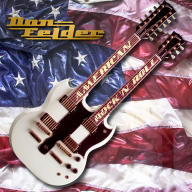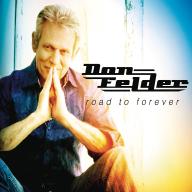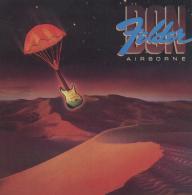Born on September 21, 1947 in Gainesville, Florida, Felder discovered rock & roll via an Elvis Presley TV appearance on The Ed Sullivan Show, which led to Felder picking up the guitar at the age of 11. Throughout his teenage years, Felder played in various groups (including the Continentals, which at separate times, also featured Stephen Stills and future Eagles bandmate Bernie Leadon). After the band split up, Felder relocated up to New York, where he appeared on an obscure self-titled debut by a group called Flow, in 1970. Although the group split up soon after, Felder kept his chops up by playing with others, and in the process, mastered several different musical styles. Tired of the New York scene, Felder relocated once more, to Boston, where he worked steadily in a recording studio for two years -- picking up pointers on how to make records via engineer work. When old friend Leadon came through town with his new band, country-rockers the Eagles, Felder joined the group for an on-stage jam session, and took Leadon's advice regarding relocating to California, where a vast amount of session work beckoned. Felder made the trip in 1972, and spent the next year recording and touring with folk singer/songwriter David Blue. Afterwards, Felder was invited to serve as a touring guitarist for Graham Nash, but when he was asked to join the Eagles, he accepted (even though he suspected the band wouldn't last for much longer, due to inter-band hostility).
Felder contributed guitar to such hit Eagles albums as 1974's On the Border and One of These Nights, but the band was still searching for the missing piece to their puzzle. The missing link turned out to be guitarist Joe Walsh, who replaced Leadon and contributed to the Eagles' massive hit, 1976's Hotel California, which became one of the best-selling albums of all time. After an oft-delayed follow-up was issued in 1979, The Long Run, and its ensuing supporting tour wrapped up (documented on 1980's Eagles Live), the Eagles announced they were splitting up in 1982. Felder subsequently contributed solo tracks to the motion picture soundtracks for Heavy Metal and Fast Times at Ridgemont High, and even issued a star-studded solo full-length in 1983, Airborne (which included contributions from Kenny Loggins, Dave Mason, and Timothy B. Schmit, among others).
In the wake of the Eagles' split and his solo release, Felder kept himself busy by guesting on other artists' albums, including the Bee Gees' Living Eyes, Stevie Nicks' Bella Donna and Wild Heart, Diana Ross' Eaten Alive, Bob Seger's Distance, Joe Walsh's There Goes the Neighborhood and You Bought It, You Name It, plus Robin Zander's self-titled release. But for the better part of the late '80s and early '90s, Felder shied away from the music biz, while rumors of an impending full-on Eagles reunion tour began to circulate. The rumors eventually proved to be fact in the spring of 1994, when the group reunited for an MTV concert taping (released the same year as Hell Freezes Over), featuring old tunes alongside a pair of new compositions. The group's ensuing tour proved to be a blockbuster success, but a rumored all-new studio album by the reunited group failed to materialize. Along with all former and current members of the Eagles, Felder performed at their 1998 induction to the Rock & Roll Hall of Fame and remained a member until 2001 when he was fired from the band.
Claiming wrongful termination and a handful of contract breaches, Felder filed a pair of lawsuits against Henley and Frey. When Felder attempted to publish his autobiography, Heaven and Hell: My Life in The Eagles (1974–2001), Henley and Frey countersued, calling it a band "tell-all." While they never reconciled personally, the legal battles between the three musicians were settled out of court in 2007 and Felder's book was published a year later. By this time, he had been touring for several years with his own group, the Don Felder Band, and in 2012, nearly three decades after his solo debut, he released a follow-up album, Road to Forever. Over the next few years he and his group toured alongside other veteran rock acts like Foreigner, Styx, and REO Speedwagon while he wrote material for his next album. Released in 2019, American Rock Roll was an inclusive and celebratory set that included a lengthy guest list of rock notables from Slash and Sammy Hagar to Bob Weir, Mick Fleetwood, and Alex Lifeson. ~ Greg Prato, Rovi














